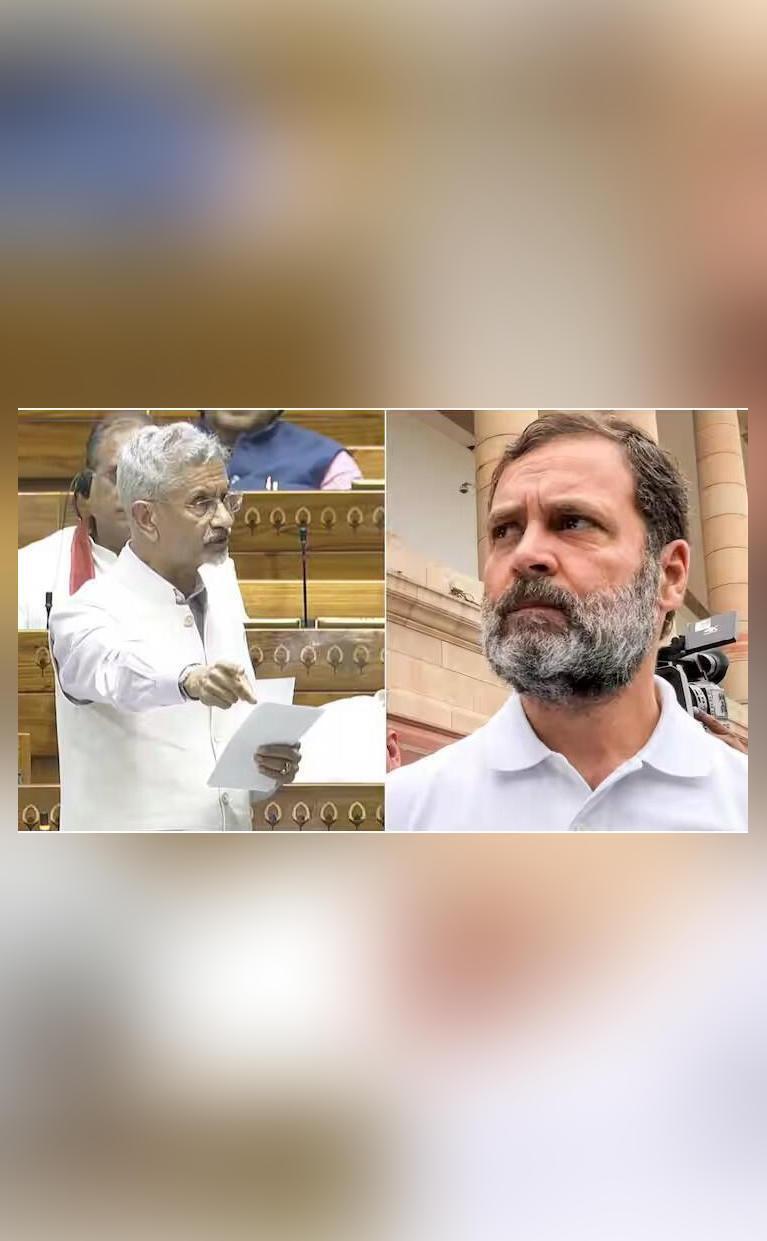
Rahul Decided to Get Briefing on Doklam Crisis from China not Indian Govt: Jaishankar
The ongoing standoff between India and China in the Doklam plateau has been a major source of concern for both countries. The crisis has seen several diplomatic efforts to resolve the issue, but tensions remain high. Recently, External Affairs Minister S Jaishankar hit out at the Congress party over its leaders’ warnings about China, saying that when the crisis was ongoing, Leader of Opposition Rahul Gandhi decided to get a briefing on the situation from the Chinese Ambassador instead of the Indian government.
Jaishankar’s statement is a scathing attack on the Congress party, which has been critical of the government’s handling of the Doklam crisis. The Minister’s comments come at a time when the ruling BJP is trying to strengthen its position ahead of the upcoming elections. Jaishankar’s attack on Rahul Gandhi is seen as a way to deflect criticism and show that the government is strong and capable of handling the crisis.
The Doklam crisis began in June 2017 when Indian troops prevented the construction of a road by the Chinese Army in the disputed territory. The crisis led to a military standoff between the two countries, with both sides refusing to back down. The crisis was resolved in August 2017 after India, China, and Bhutan agreed to dismantle the road and withdraw their troops from the area.
Jaishankar’s statement is not the first time that the government has hit back at the Congress party over its handling of the Doklam crisis. In 2017, the then Defence Minister Nirmala Sitharaman had said that Rahul Gandhi was “unpatriotic” for questioning the government’s handling of the crisis.
The Congress party has been critical of the government’s handling of the Doklam crisis, saying that it was a result of the government’s “weak” and “ineffective” diplomacy. The party has also accused the government of being “soft” on China and failing to protect India’s interests.
Jaishankar’s statement is seen as a way to counter the Congress party’s criticism and show that the government is strong and capable of handling the crisis. The Minister’s attack on Rahul Gandhi is also seen as a way to deflect criticism and shift the focus away from the government’s handling of the crisis.
The Congress party has been critical of the government’s handling of the Doklam crisis, saying that it was a result of the government’s “weak” and “ineffective” diplomacy. The party has also accused the government of being “soft” on China and failing to protect India’s interests.
Jaishankar’s statement is also seen as a way to show that the government is committed to protecting India’s interests and will not back down in the face of Chinese aggression. The Minister’s attack on Rahul Gandhi is also seen as a way to show that the government is strong and capable of handling the crisis.
The Doklam crisis is a major source of concern for both India and China, and the two countries are still trying to resolve the issue. The crisis has seen several diplomatic efforts to resolve the issue, but tensions remain high.
In 2006, the Congress party had agreed to do a “regional trading arrangement” with China, which was seen as a major diplomatic victory for the party. However, the arrangement was later scrapped by the government, citing national security concerns.
Jaishankar’s statement is seen as a way to counter the Congress party’s criticism and show that the government is strong and capable of handling the crisis. The Minister’s attack on Rahul Gandhi is also seen as a way to deflect criticism and shift the focus away from the government’s handling of the crisis.
In conclusion, External Affairs Minister S Jaishankar’s statement is a scathing attack on the Congress party over its leaders’ warnings about China. Jaishankar’s statement is seen as a way to counter the Congress party’s criticism and show that the government is strong and capable of handling the crisis. The Minister’s attack on Rahul Gandhi is also seen as a way to deflect criticism and shift the focus away from the government’s handling of the crisis.



